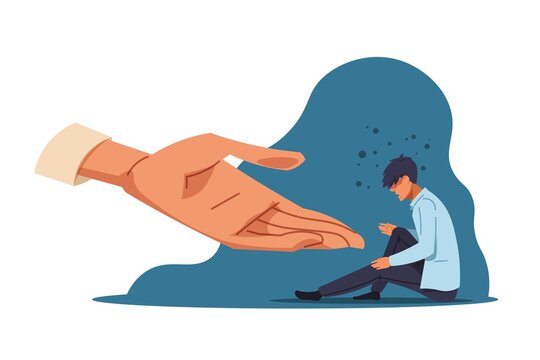Signs of mental health crisis can appear suddenly or develop gradually over time, and recognizing them is crucial for providing timely support. Mental health crises can affect anyone, regardless of age, background, or circumstances. Whether it’s a loved one, a friend, or even yourself, understanding the warning signs can make all the difference in preventing a situation from escalating. In this article, we’ll explore 7 key ways to recognize the signs of a mental health crisis and how you can take action to help.
1. Sudden Changes in Behavior
One of the most common signs of mental health crisis is a sudden and drastic change in behavior. This could include withdrawing from social activities, neglecting responsibilities, or acting out in ways that are uncharacteristic. For example, someone who is usually outgoing may become isolated, or someone who is typically calm may exhibit sudden bursts of anger or irritability. Pay attention to these shifts, as they often indicate that something deeper is going on.
2. Expressions of Hopelessness or Helplessness
When someone frequently talks about feeling hopeless, helpless, or like a burden to others, it’s a serious red flag. These feelings are often linked to depression or suicidal thoughts, which are critical signs of mental health crisis. Statements like “I don’t see the point anymore” or “Everyone would be better off without me” should never be ignored. If you hear these kinds of comments, it’s important to reach out and offer support immediately.
3. Drastic Changes in Sleep Patterns
Sleep disturbances are another key indicator of a mental health crisis. This could include sleeping too much, struggling with insomnia, or experiencing restless and interrupted sleep. Sleep is closely tied to mental health, and significant changes in sleep patterns often signal underlying issues. If someone is consistently exhausted or unable to sleep, it may be time to address their mental health concerns.
4. Increased Substance Use
Turning to alcohol or drugs as a coping mechanism is a common but dangerous response to emotional distress. Increased substance use is one of the clearest signs of mental health crisis, as it often indicates that someone is struggling to manage their emotions. If you notice someone drinking excessively, using drugs, or relying on substances to get through the day, it’s important to intervene and encourage them to seek help.
5. Difficulty Concentrating or Making Decisions
Mental health crises can impair cognitive functioning, making it hard for someone to focus, remember things, or make decisions. If someone seems unusually forgetful, confused, or unable to complete tasks they normally handle with ease, this could be a sign of a deeper issue. Difficulty concentrating is often linked to anxiety, depression, or overwhelming stress, all of which can contribute to a mental health crisis.
6. Physical Symptoms Without a Clear Cause
Mental health crises don’t just affect the mind—they can also manifest physically. Common physical symptoms include headaches, stomachaches, fatigue, or unexplained aches and pains. If someone is experiencing persistent physical symptoms without a clear medical explanation, it could be one of the signs of mental health crisis. These symptoms are often the body’s way of signaling emotional distress.
7. Talking About Self-Harm or Suicide
Perhaps the most urgent sign of a mental health crisis is when someone talks about self-harm or suicide. This could include direct statements like “I want to hurt myself” or more subtle comments like “I don’t want to be here anymore.” Any mention of self-harm or suicidal thoughts should be taken seriously and addressed immediately. If you or someone you know is in immediate danger, contact a crisis hotline or emergency services for help. For example, the National Suicide Prevention Lifeline offers 24/7 support for individuals in crisis.
How to Respond to the Signs of Mental Health Crisis
Recognizing the signs of mental health crisis is the first step, but knowing how to respond is equally important. Here are a few steps you can take:
- Listen without judgment: Let the person know you’re there for them and willing to listen.
- Encourage professional help: Suggest reaching out to a therapist, counselor, or doctor.
- Offer resources: Share information about crisis hotlines or mental health organizations, such as the National Alliance on Mental Illness (NAMI).
- Stay present: If the situation is urgent, stay with the person until professional help arrives.
Take Action Today
Recognizing the signs of mental health crisis can save lives. Whether it’s a loved one, a friend, or even yourself, understanding these warning signs is the first step toward getting the help that’s needed. If you’re concerned about someone’s mental health, don’t hesitate to reach out and offer support.
If you’re looking for personalized guidance, my private practice in Melrose, MA is here to help. I offer consultations to support individuals and families navigating mental health challenges. Visit my services page to learn more about how I can assist you.
External Resources for Mental Health Support:
- National Suicide Prevention Lifeline – Warning Signs of Suicide – Learn how to recognize and respond to suicidal behavior.
- Mental Health America – Crisis Resources – A list of resources for individuals experiencing a mental health crisis.
Take the first step today—your mental health and the well-being of those around you matter.

